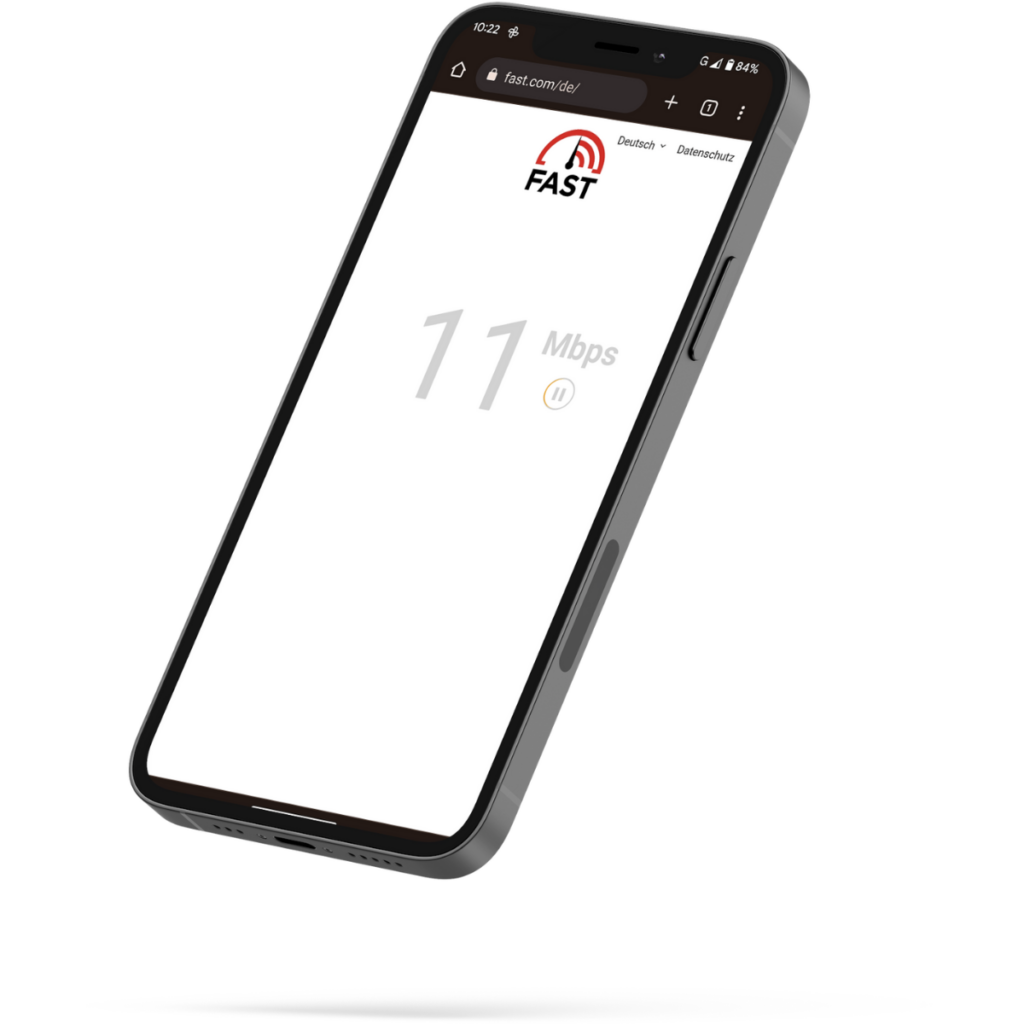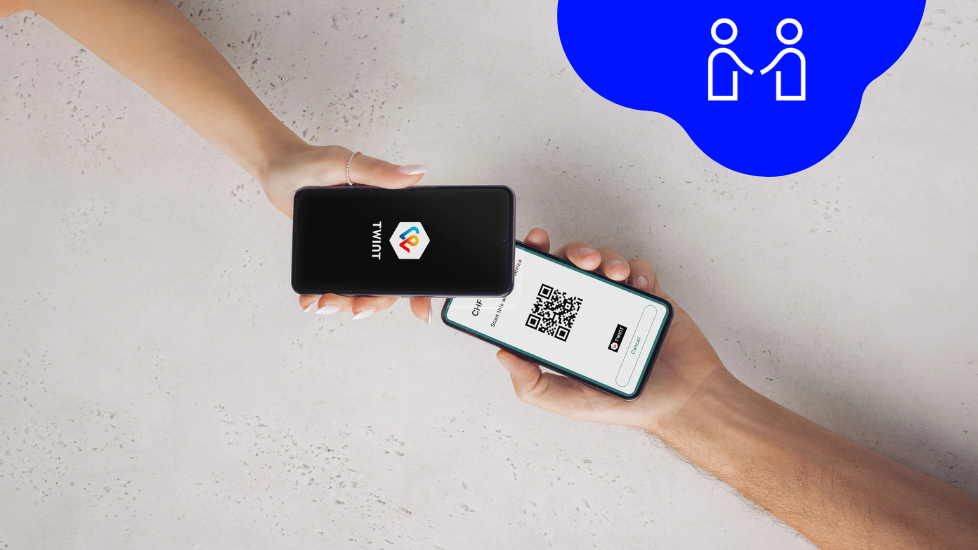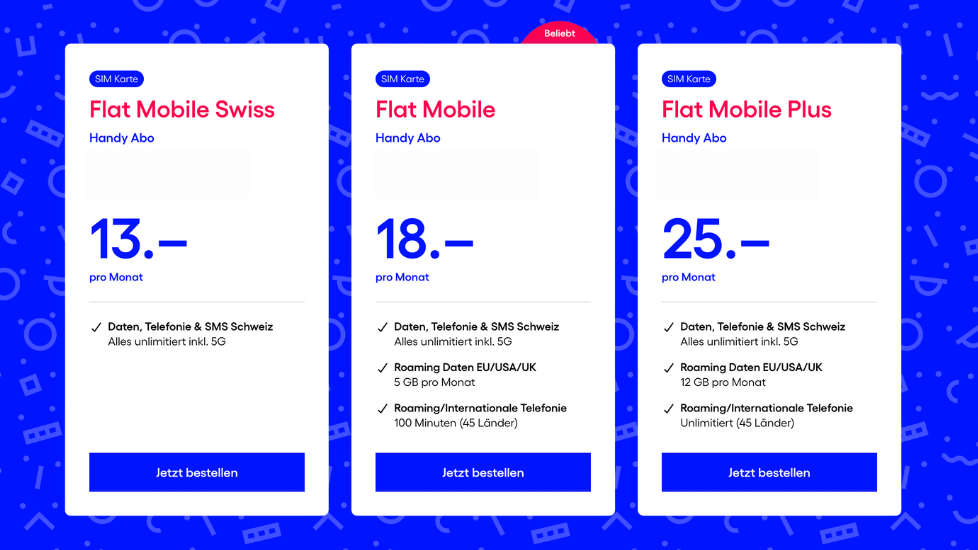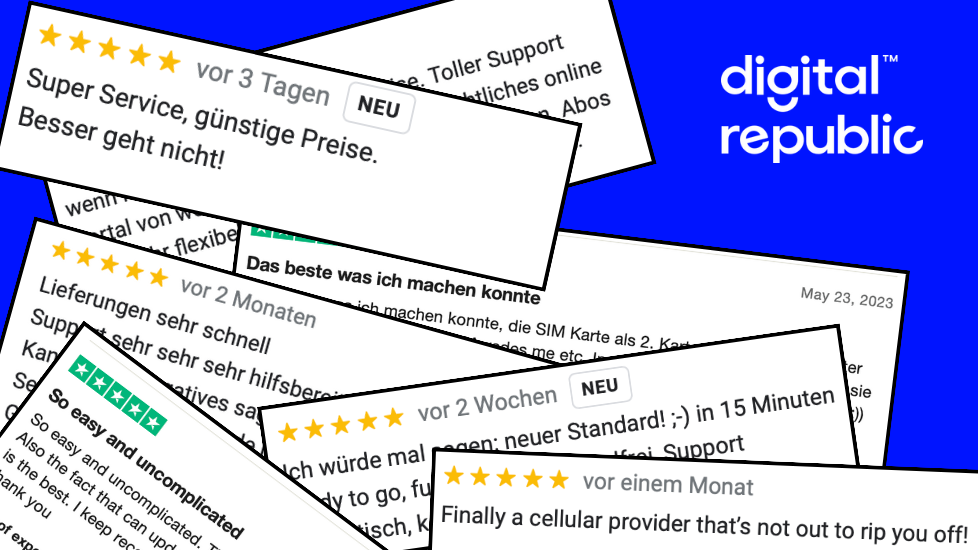What Are Mbits and How Many Does a Cell Phone Need?
Mobile internet is standard in Switzerland. Limited national data volumes are increasingly rare, and most people surf the web via LTE or 5G throughout their day-to-day lives. However, the high priority given to internet connections for smartphones also means that, as a customer, you have to consider the connection speed when choosing a plan. This is usually indicated in the offers with “Mbits” and, of course, providers outdo each other with the maximum speed advertised. In everyday use, however, both the demand of a smartphone and the speed actually achieved usually look different.
These Are “Mbits”.
‘Mbits’, or ‘Mbit/s’, stands for ‘megabits per second’ and describes the number of ‘bits’ that are transmitted per second during a data connection. A ‘bit’ is the smallest possible unit of a data set, i.e. a single binary number. This is also where the word ‘bit’ comes from (from the English ‘binary digit’).
The ‘M’ or ‘mega’ in ‘Mbits’ is a prefix for units of measurement that indicates that it is a million times the specified value. 1 Mbit is therefore 1,000,000 bits and 1 Mbit/s means a transmission speed of 1,000,000 bits per second.
The size of photos, videos or apps on your phone is usually not given in bits, but in bytes. A typical photo on a smartphone is 2.6 megabytes (MB) in size. A byte consists of a group of 8 bits. With an Mbit/s, you can transfer 125,000 bytes per second or 0.125 MB. With such a connection, it would take about 21 seconds to transfer the 2.6 MB photo.

What Does This Mean for the Speed Encountered in Everyday Life?
With all this knowledge about bits and bytes, you may not yet be able to imagine exactly how fast the data connection would feel in everyday use. Typical scenarios and a few reference values may help here. As a reference for the speed, we assume the 30 Mbit/s of our Flat Mobile cell phone subscription.
This results in a transfer rate in megabytes (MB) of 3.75 MB/s.
With the 30 Mbit/s you can, for example:
- Loading a 2.6-megabyte photo in 0.7 seconds.
- Load a typical 3 MB website in 0.8 seconds.
- Download an average 34 MB app in 9 seconds.
- Smoothly steam a 1080p 60fps video.
- A 150 MB update or game can be downloaded in 40 seconds.
How Many Mbits Does a Cell Phone Need?
How fast your connection needs to be depends, of course, on your expectations and usage habits. However, for the majority of users, a speed of 30 Mbit/s is sufficient for mobile applications.
In addition, there is the fact that mobile connections are always subject to certain fluctuations and, depending on the location, can be restricted by buildings or even the weather. On average, you can achieve a minimum speed of between 10 and 50 Mbit/s in most places in Switzerland via mobile networks, regardless of the provider.
If you mainly use your smartphone for typical smartphone applications such as messaging, video and audio streaming, and surfing the net, 30 Mbit/s is more than enough and you won’t notice any speed fluctuations in most places (except for dead zones).
Discover Our Other News Articles

Payment Terminals for Everyone!
The world is becoming increasingly cashless. Small and medium-sized businesses in particular are faced with the challenge of having to accept electronic payments when dealing directly with customers. The necessary equipment is often expensive, complicated, and comes with a monthly base fee. But there are alternatives!

The Development of Our Ideal Cell Phone Plans for Switzerland
The path to the current Trio Flat Mobile Swiss, Flat Mobile, and Flat Mobile Plus cell phone plans is also an example of how Digital Republic wants to function as a provider and where its priorities lie. We have quickly transformed ourselves from a pure data SIM provider to a cell phone plan provider. And we have completely rethought the development process.

The Affordable Mobile Provider With Award-Winning Service
When it comes to mobile providers in Switzerland, the wheat is often separated from the chaff when it comes to price. Either you pay little for your subscription and do without services like support or 5G, or you go to one of the big providers and pay more than you might like. At Digital Republic, you get both!
